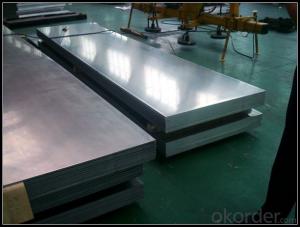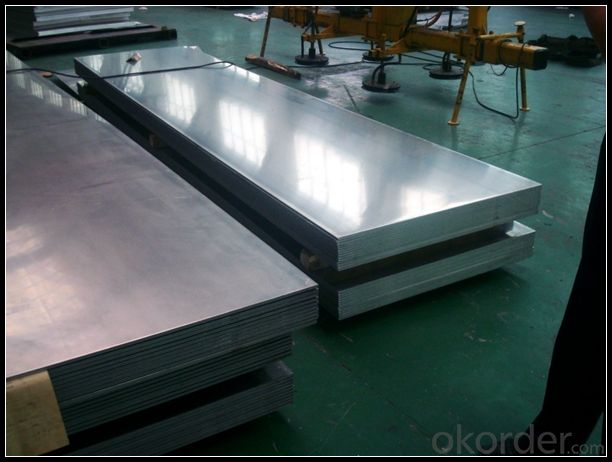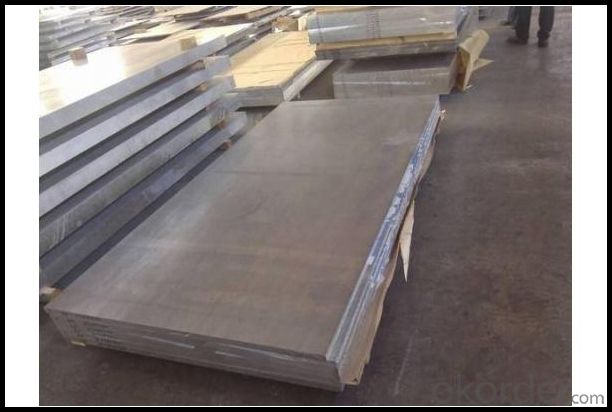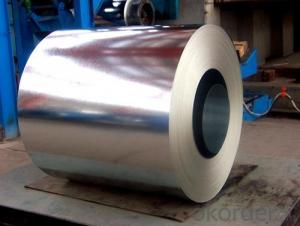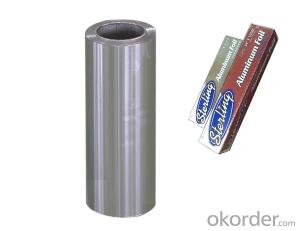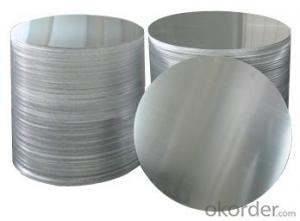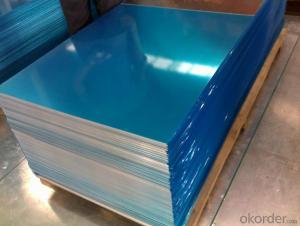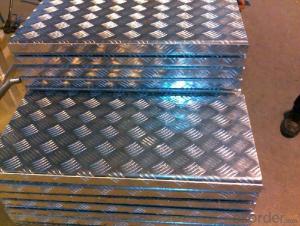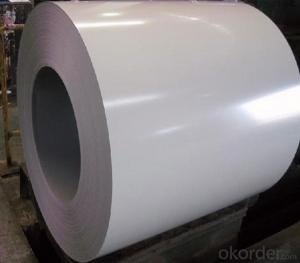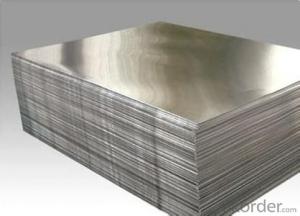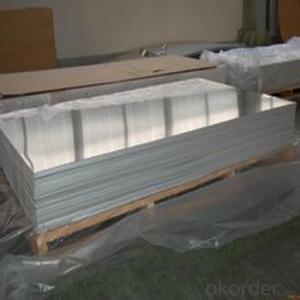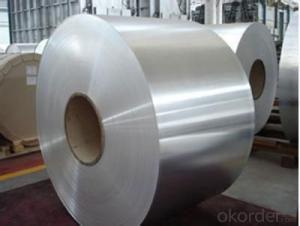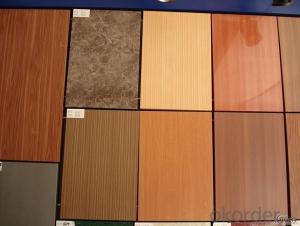Mill Finished Aluminum Sheets for Building Roofing - West Virginia
- Loading Port:
- Shanghai
- Payment Terms:
- TT OR LC
- Min Order Qty:
- 5 m.t.
- Supply Capability:
- 10000 m.t./month
OKorder Service Pledge
OKorder Financial Service
You Might Also Like
Specification
1. Specification of Mill Finished Aluminium Sheet for Building Roofing
ALLOY | AA1050 AA1060 AA1070 AA1100 ETC AA3003 AA3004 AA3005 AA3104 AA3105 ETC AA5005 AA5052 AA5083 AA5754 ETC AA8011 AA8006 AA8079 ETC |
TEMPER | H14,H16,H18,H22,H24,H26,H32,O/F |
THICKNESS | ≥0.2MM |
WIDTH | 30mm-2100mm |
COIL WGT | 2Mt - 3Mt |
COIL ID | φ508mm,φ610mm |
SURFACE | PE Protecting film |
STANDARD | GB/T 3880-2006 |
2. Application of Mill Finished Aluminium Sheet for Building Roofing
(1).Interior: wall cladding, ceilings, bathrooms, kitchens and balconies, shutters, doors...
(2).Exterior: wall cladding, facades, roofing, canopies, tunnels,column covers , renovations...
(3).Advertisement: display platforms, signboards, fascia, shop fronts...
3. Feature of Mill Finished Aluminium Sheet for Building Roofing
Surfact Quality :
Be free from Oil Stain, Dent, Inclusion, Scratches, Stain, Oxide Dicoloration, Breaks, Corrosion, Roll Marks, Dirt Streaks and other defect which will interfere with use,
Mechenical Property:
Chemical Composite and Mechanical Property
4. Certificate:
SGS and ROHS(if client request, paid by client), MTC(plant provided), Certificate of Origin(FORM A, FORM E, CO), Bureau Veritas and SGS (if client request, paid by client), CIQS certificate
5. Image of Mill Finished Aluminium Sheet for Building Roofing
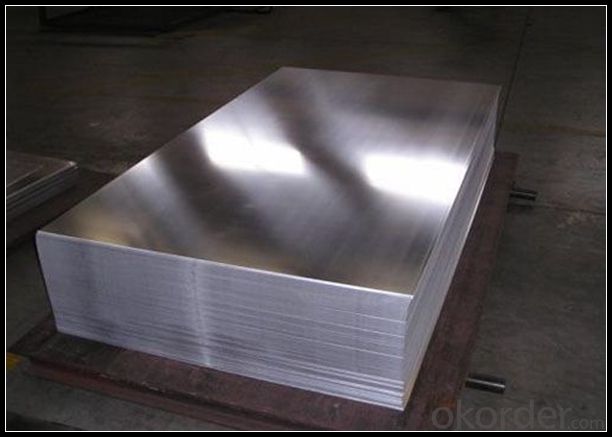
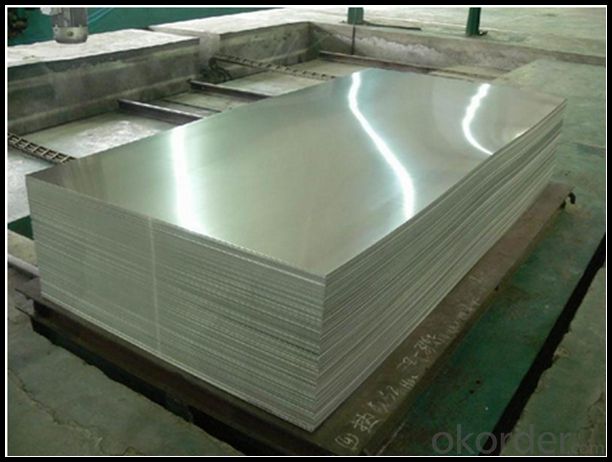
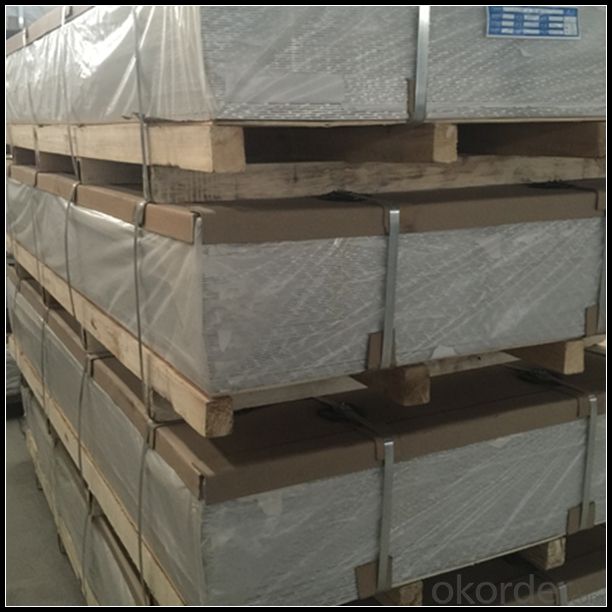
6. Package and shipping of Mill Finished Aluminium Sheet for Building Roofing
First, plastic cloth with drying agent inside; Second, Pearl Wool ; Third, wooden cases with dry agent , fumigation wooden pallets, aluminum surface could cover blue PVC film
7. FAQ
1) What is the delivery time?
Dpends on actual order, around 20 to 35 days
2)What is the QC system:
We have QC staff of 20 persons and advanced equipment, each production is with MTC traced from Aluminum ingot lot.
3) What market do you mainly sell to?
Australia, America, Asia, Middle East, Western Europe, Africa etc
- Q: What are the different surface finishes for aluminum sheets in the construction industry?
- Some common surface finishes for aluminum sheets in the construction industry include mill finish, anodized finish, brushed finish, and powder coated finish.
- Q: Aluminum standard 30*25*2500 to 1000 1 how to calculate the number of materials needed?. 2 how to calculate the cutting loss?
- The aluminum density of the alloy is about the same as this one, which can be roughly estimated.
- Q: This question asks for a comparison between aluminum sheets and other roofing materials, highlighting their differences.
- <p>Aluminum sheets differ from other roofing materials such as asphalt shingles, clay tiles, and metal roofs in several ways. They are lightweight, durable, and resistant to corrosion, making them ideal for coastal areas. Aluminum sheets offer a sleek, modern aesthetic and can be easily recycled, contributing to their environmental friendliness. Unlike asphalt shingles, which have a shorter lifespan, aluminum sheets are long-lasting and can withstand extreme weather conditions. They also don't require the same level of maintenance as clay tiles, which can crack over time. While metal roofs can be similar to aluminum in terms of durability, aluminum sheets are typically more cost-effective and offer a wider range of colors and finishes.</p>
- Q: We just bought a house with aluminum wiring and we knew about it in the inspection report, but everyone kept telling us it's no big deal. There was so much going on and I didn't look into it myself and now I just surfed the web on it and I am filled with anxiety! Please help! Did we make a huge mistake? How common are the dangers? Also, my insurance company didn't ask me about wiring, but some sites said that they don't cover aluminum wiring. Should I ask them? I am so overwhelmed and scared. I do not want a fire for my family!
- Lots of great answers here. IF and I do mean IF your aluminum wiring was installed and maintained properly, there will be no problem. However, if someone has replaced any device designed for aluminum with one for copper, you WILL have a problem. My advice...call a GOOD electrical contractor for an independent inspection. Make sure he knows that his company will NOT be the one to make corrections beforehand. This insures that he will give you an honest inspection and not try to use the moment for a sales pitch. After the inspection, hire him to do the work. A bit devious, but the plan is sound.
- Q: Can aluminum sheets be used for air ducts?
- Indeed, air ducts can utilize aluminum sheets. Aluminum, known for its lightweight and durable characteristics, is frequently employed in air ducts. Its resistance to corrosion renders it a suitable option for HVAC systems. Air ducts are often constructed using aluminum sheets due to their malleability, enabling easy bending and shaping to meet specific dimensions. Moreover, aluminum boasts commendable thermal conductivity, ensuring efficient heat transfer within the ducts. Ultimately, opting for aluminum sheets in air ducts proves to be a pragmatic and efficient decision.
- Q: Are aluminum sheets suitable for chemical processing?
- Yes, aluminum sheets are suitable for chemical processing. Aluminum is known for its excellent corrosion resistance, making it a popular choice for applications involving exposure to various chemicals. It forms a protective oxide layer that prevents further corrosion, even in harsh environments. Aluminum is also lightweight, which makes it easier to handle and transport in chemical processing industries. Additionally, aluminum is a good conductor of heat, allowing for efficient temperature control during chemical reactions. Overall, aluminum sheets are a suitable choice for chemical processing due to their corrosion resistance, lightweight nature, and good thermal conductivity.
- Q: I put the aluminum in copper chloride for an experiment and i was wondering if they had different properites.
- Aluminium is and element. An oxide is the result of a substance reacting with oxygen. The properties are completely different for elements and oxides.
- Q: Can aluminum sheets be used for insulation jackets?
- Yes, aluminum sheets can be used for insulation jackets. Aluminum has excellent thermal conductivity properties, which allows it to effectively reflect heat and prevent the transfer of thermal energy. This makes it an ideal material for insulation jackets, as it helps to maintain temperature control and minimize heat loss or gain. Additionally, aluminum sheets are lightweight, durable, and resistant to corrosion, making them a practical choice for insulation applications.
- Q: Are 101 aluminum sheets suitable for mold making?
- No, 101 aluminum sheets are not suitable for mold making.
- Q: Can aluminum sheets be used for electronic devices?
- Indeed, electronic devices can utilize aluminum sheets. The electronics industry extensively employs aluminum owing to its commendable conductivity, lightweight structure, and remarkable resilience. It is frequently employed in diverse capacities, including enclosures for electronic elements, heat dissipation systems, and electrical connectors. Aluminum sheets can be effortlessly shaped into various dimensions and configurations, rendering them adaptable for a broad array of electronic devices. Moreover, aluminum emerges as a cost-efficient material, fostering its allure to electronics manufacturers.
Send your message to us
Mill Finished Aluminum Sheets for Building Roofing - West Virginia
- Loading Port:
- Shanghai
- Payment Terms:
- TT OR LC
- Min Order Qty:
- 5 m.t.
- Supply Capability:
- 10000 m.t./month
OKorder Service Pledge
OKorder Financial Service
Similar products
Hot products
Hot Searches
Related keywords
